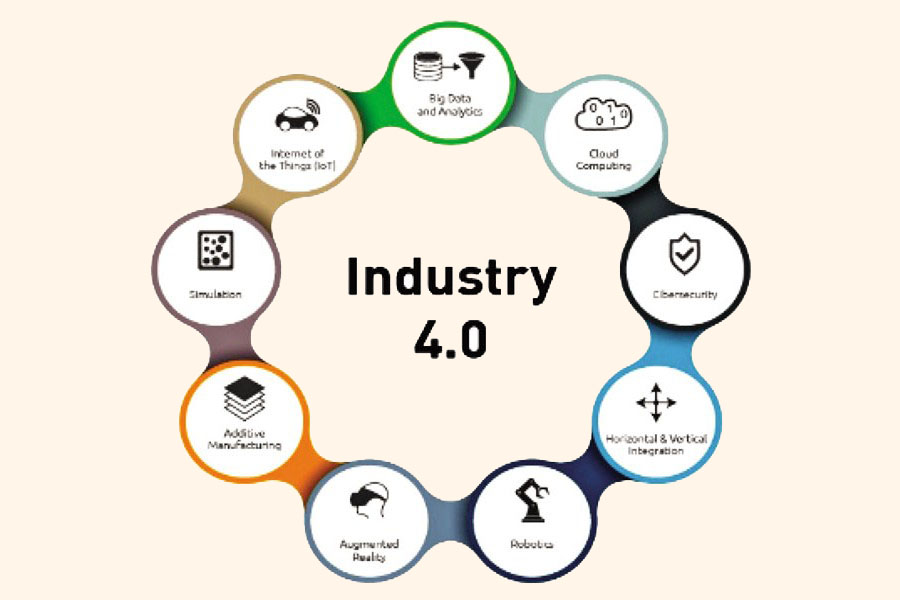
Published :
Updated :

Bangladesh should put greater emphasis on the development of skilled human resources to meet the challenges and opportunities brought about by rapidly changing economic activities, driven by evolving information and technology, experts said at a discussion on Monday.
They also stressed the need for modernisation of the country's education system, especially through expanding technical and vocational education programmes.
They also underscored the importance of adequate budget allocation for skill development initiatives, improved coordination among relevant government agencies, and stronger collaboration between industry and academia to address the challenges of the Fourth Industrial Revolution (4IR).
The discussion, titled 'Smart Human Capital Development in the Context of the 4IR', highlighted the crucial role that skilled human resources will play in coping with the growing influence of artificial intelligence (AI) on global economic trends. The Dhaka Chamber of Commerce and Industry (DCCI) organised the event.
In his welcome address, DCCI President Taskeen Ahmed noted that the Fourth Industrial Revolution is not just a technological transition but a profound transformation in production systems, business operations, and labour markets worldwide.
He pointed out that AI is reshaping Bangladesh's industrial and service sectors, citing a World Economic Forum report that predicts one-fourth of current jobs will undergo transformation over the next five years.
A smart human resource workforce will be key to ensuring Bangladesh remains competitive in the post-LDC era, Ahmed said, stressing the importance of preparing for technology-driven employment opportunities. He called for fundamental reforms in the country's education system, with a focus on technical education and a stronger connection between academia and industry.
Speaking as the chief guest, Dr. Nazneen Kawshar Chowdhury, Executive Chairman of the National Skills Development Authority (NSDA), pointed out that there is a lack of coordination among government agencies involved in conducting training programmes, as well as limited awareness about the importance of skill development.
She mentioned that during its initial phase, NSDA primarily focused on establishing its legal, physical and administrative structures. However, the organisation is now focusing on training for human resource development.
She also highlighted the government's initiative to train 100,000 skilled workers in the Japanese language to meet the demand for labour in Japan.
Furthermore, she stressed the need to prioritise skill development programmes for women and integrate training with 4IR needs while fostering stronger public-private collaborations.
In his keynote presentation, Dr M Niaz Asadullah, visiting Professor of Economics, Reading University, UK, referred to a 2019 study by Aspire to Innovate (a2i) and UNDP. The study predicts that technological advances may result in the loss of around 5.38 million jobs in Bangladesh's key sectors, including Ready-Made Garments (RMG), agriculture, and tourism, by 2030.
Dr. Asadullah emphasised the need to enhance workers' technological skills through rigorous training programmes.
He also called for modernizing the education system, increasing the use of advanced technologies in technical education, and ensuring adequate funding for skill development initiatives.
Mahtab Uddin Ahmed, President of the Institute of Cost and Management Accountants of Bangladesh (ICMAB), highlighted a critical gap in the job market, noting that only 20 per cent of graduates are able to secure jobs matching their qualifications while around 2 million remain unemployed.
He called for a shift in societal attitudes towards vocational training and for greater emphasis on technical education.
Professor Dr. Shams Rahman, Vice Chancellor of East West University (EWU), pointed out that the current education system is not aligned with industry demands. He stressed the need for coordinated efforts between educational institutions and the industrial sector to produce a skilled workforce.
Raisul Kabir, CEO of Brain Station 23, argued that while AI has sparked concerns about job displacement, if utilised properly, it can create new employment opportunities by enhancing productivity.
However, he stressed the importance of upskilling the workforce to prepare for these emerging roles.
DCCI former Vice President M. Abu Hurairah, DCCI Director Zamsher Ali, Convenor of the DCCI Standing Committee Mir Sharukh Islam also spoke.
talhabinhabib@yahoo.com


 For all latest news, follow The Financial Express Google News channel.
For all latest news, follow The Financial Express Google News channel.